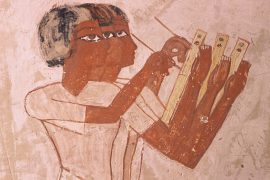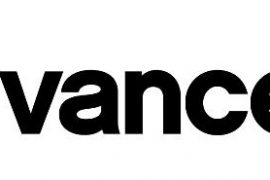The 2023 Educational Innovation Awards was an opportunity to share and celebrate examples of innovative teaching and learning practice at the University of Sydney. Applicants were asked to align their submission with one of four teaching and learning strategic initiatives, and submissions took the form of a short video. We are hoping to host another round of awards in 2024, so keep your eyes and ears peeled for our call for applications!
Below you can find links to a selection of the excellent and inspiring video submissions we received, grouped according to the teaching and learning initiative the submission aligned with. Winners are noted, and submissions marked with an asterisk were highly commended by the judging panel.
Deliver effective blended learning experiences to maximise engagement and outcomes
- Joint Winner: Dr. Joanne Hinitt
Hear about how Joanne used Cogniti to develop ‘Mrs S‘, an AI chatbot that supported interactive deep learning for occupational therapy students taking part in a simulated clinical placement workshop. Students found the activity supported them in developing new ways of thinking about their clinical judgements and skills, and that it improved their learning experience. Joanne suggests that any unit that uses roleplay or simulation to support student learning could benefit from a similar innovation. - Joint Winner: Hamish Fernando
Here Hamish shares how he supported students in keeping track of their learning in a content-heavy biomedical engineering unit of study through storytelling, integrating weekly challenges that progressed an imaginary scenario. Anecdotally student content mastery increased, and students shared that they found the story gave them an interesting and fun challenge to work through each week. Hamish suggests that any unit of study could integrate this approach, and shares how he used ChatGPT to build the story throughout the semester. - Dr. Alison Wong *
In first-year business analytics Alison’s students need to get their heads around both linear algebra and learning Python. In order to help them with the programming skills, she developed customised weekly programming modules aligned with lecture content and mathematics skills and recorded pencasts working through the activities. In feedback students shared that overwhelmingly the activities and pencasts achieved this goal. Alison suggests that this approach could be utilised in any unit of study which teaches programming content or skills. - Dr. Shane Wilkinson *
Each year in first-year chemistry Shane is responsible for ensuring almost 2500 students complete a laboratory safety induction. He saw an opportunity to use the task to support the development of other key skills including reflection and critical analysis, and created a safety induction scavenger hunt supported by the Student Relationship Engagement System. In addition to developing these skills in students, Shane and his teachers found that the game facilitated peer-to-peer and student-teacher interactions, and recommends the approach to anyone working in a similar context. - Dr. Stephen George-Williams *
Low attendance in first-year Chemistry lectures posed a challenge for Stephen, and he looked to a flipped classroom to help solve it. Utilising video, lightboards, self-check quizzes, contextualised problems, and Canvas quizzes to name just a few, he saw up to a 4x increase in attendance across just one semester. With overwhelmingly positive feedback particularly from neurodiverse students and increased student engagement in class, Stephen is looking at how he can extend the approach into other Chemistry units. - Louise Luff, Dr. Benjamin Lay, Dr. Kaiying Ji, Janine Coupe *
As a team, Louise, Benjamin, Kaiying and Janine coordinate a third-year accounting unit that supports the development of accounting skills, critical thinking, and professional judgement. Together they developed interactive excel spreadsheets that presented students with cases involving complex professional judgement, using conditional formatting to step students through the scenarios, and another that supported students in planning and completing their major essay. The team saw a 50% improvement in responses to critical thinking questions in their exam, and their students felt that the spreadsheets were interesting, engaging, and supported them in applying what they had learned in lectures. - Dr. Faham Tahmasebinia
A core assessment in Faham’s third-year civil engineering unit asks students to submit a technical design utilising new-generation materials. This re-designed assessment encouraged student choice and voice, and flexibility on what they wanted to write on. Faham also supplemented the assignment with videos explaining the process. The work that his students produced was creative and interesting, and can be easily adapted to take to job interviews to form part of a portfolio. - Dr. Rebecca Roubin
Over the last few years Rebecca and her colleagues teaching PHAR5723 Immunology and Cancer noticed very little discussion about course content taking place in their online environment. After asking students why and what would work for them, they launched a pilot (for Pharmacy) of Ed Discussions and found a dramatic increase in the volume and quality of student engagement. - Rhea Soria & Bangyun (Susanna) Wang
Rhea and Susanna teach into a final-semester unit in the Bachelor of Nursing that support students’ professional skills in working with patients with complex care needs. They sought to increase the authenticity of the unit, particularly related to the realities of shiftwork, and did so using interprofessional learning activities, high fidelity simulations, and team communication activities. Their students responded positively, and the teaching team noted the authenticity of the activities and increase in student engagement and mastery. - Dr. Jessica Kean
Jessica shares her approach to using Canvas as a welcoming and supportive platform for students transitioning into university life, highlighting her experiences teaching a large first-year Gender and Cultural Studies unit and an Industry and Community Project unit. She emphasises the importance of explicit communication about learning environments and expectations, and discusses how she utilised Universal Design for Learning principles to create orientation modules that introduce new students to university culture, lecture and tutorial structures, and their teaching teams. Jessica’s efforts, reflected in positive student feedback, demonstrate how small, thoughtful gestures, like personal introduction videos, can significantly alleviate student anxiety and foster a more engaging and inclusive learning atmosphere. - Karen-Anne Wong
Karen discusses several ways in which she was able to cater to the diverse learning needs of students in a postgraduate Gender and Cultural Studies unit. This included facilitating the formation of language-specific study groups and allowing for diverse forms of engagement in class discussions through the use of technologies like Poll Everywhere. These initiatives increased students’ confidence and fostered a sense of belonging and meaningful engagement in the learning process. - Andrew Bartlett and Dr. Jessica Pace
Jessica and Andrew share how redesigning the layout of the Canvas modules in a Pharmacy unit helped remove barriers to students’ engagement in weekly learning activities. This resulted in a better experience for students and a reduction in admin for staff who previously needed to spend time at the end of the semester following up with students who had not completed compulsory activities.
Involving students as citizens of their own lifelong learning journey
- Winner: Dr. Mary Myerscough, Annie Sadowski, Vicki-Anh Winfield (with special guest appearance by Irina Lotsaris)
MATH1050 is a first-year unit designed to equip science students with essential mathematical tools for success in their academic and professional futures. In order to help students appreciate the value of the learning in this subject for a future in science, the team recruited the help of senior students to create a series of short and engaging videos in which they describe to their peers the practical applications of the mathematics they will be learning in the unit. - Lauren Nilsson
Lauren shares some of the practices she employed to create a safe and inclusive learning environment in a third-year Gender and Cultural Studies unit. This included facilitating student input into the setup of the learning environment, providing learning materials in multiple formats, and providing for multiple forms of engagement in learning activities. Student feedback communicated an appreciation for the inclusive design of the unit and for the agency students were given over their learning in the unit. - Dominic Hearne
Dominic from the School of Education and Social Work explains how he enhanced student engagement in his unit by applying project-based learning principles. Instead of a traditional teacher-led approach, Dominic designed a tutorial where students take control of their learning by dividing into groups, researching video game user research, and teaching their findings to the class using Google Slides. The strategy empowers students as active participants in their education, fostering a sense of control and engagement, with feedback indicating a desire for more such interactive sessions.
Transform assessment and feedback practices
- Winner: Dr. Stephen Tierney
Stephen presents his approach to enhancing student engagement and skill development in QBUS5010, a project-based elective in the Master of Commerce program where students design and build a dashboard. He implemented a scaffolded assessment structure with staged deliverables and continuous ‘feed forward’ sessions for early feedback, along with leveraging peer reviews and a semester-end showcase to foster community and real-world relevance. Stephen’s initiatives resulted in high student approval, with survey results indicating the effectiveness of the workshops and scaffolding in supporting student learning and pride in their completed dashboards. - Dr. Tamara Power, Louise Sheehy, Bangyun (Susanna) Wang *
Tamara, Louise, and Susanna introduce a reflective assessment called the Point of View (POV) Simulation for second-year nursing students, aimed at enhancing empathy and engagement by simulating the patient experience of living with a chronic condition, specifically Inflammatory Bowel Disease (IBD). Students wore a stoma bag for 48 hours to understand the physical, emotional, and social impacts of IBD, with early analyses indicating a significant increase in student empathy post-assessment. They suggest that the POV simulation, developed in collaboration with clinicians and consumer advocates, could be adapted to other units of study, emphasizing the importance of meaningful replication of patient experiences and reflective comparison with qualitative literature. - Dr. Krithika Randhawa, Virginia Springer, Mike Bellemore
Krithika and the SIEN2001 team share some of the ways they supported students to develop their innovation and entrepreneurial skills while working to solve real world problems faced by industry partners. Of particular note was their use of a scaffolded assessment structure, with students delivering an interim pitch and receiving feedback they were able to put to use in later assessment. Student feedback suggested they appreciated the opportunity to learn from feedback throughout and the unit, and valued the opportunity to work with industry partners on real world problems. - Dr. Joanne Hart
Joanne from the MD project team shares how they improved grading and feedback for third-year medical students at the University of Sydney. By introducing the Student Relationship Engagement System (SRES) to facilitate grading by multiple markers and provide personalized continuous feedback, the team significantly reduced grading time and improved student satisfaction. - Laura Di Michele & Roger Bourne
Laura and Roger share how they transformed MITY5139, the Capstone unit of the Masters of Medical Imaging Science, to enhance the learning experience for practicing diagnostic radiographers. They implemented asynchronous delivery, Universal Design principles for accessibility, and authentic assessments that involve students applying innovations in their clinical workplaces. This approach has empowered students to drive evidence-based change in their practices, with positive feedback highlighting the unit’s impact on making implementation science more approachable and feasible. - Jacob Elmasry
Jacob discusses his approach to feedback and assessment in a fluid mechanics unit, where he provided students with the opportunity and incentive to learn from their errors on weekly tasks without impacting their overall grades. He reports positive outcomes from students who, through this process, were encouraged to engage more deeply with the unit’s content. - Dr. Mohammad Polash
Mohammad discusses an alternative assessment structure in which students were allowed multiple attempts on low-weighted coding exercises throughout the semester, giving them an opportunity to learn from mistakes and feedback provided on earlier attempts. The approach was well-received by students who found that it supported them in developing their coding skills as the semester progressed. - Dr. Christine Preston
Chris provided her Primary Teaching students with the opportunity to co-design innovative teaching resources that incorporated both Western scientific and Indigenous ways of knowing. Through this experience students were challenged to think about how they might draw upon diverse cultural perspectives in their teaching, while producing an authentic teaching resource that can form part of their future practice.
Use data and insights meaningfully to enhance student learning
- Winner: Dr Dashiell Moore
Dash introduces SCANA, an online diagnostic tool that evaluates students’ academic language proficiency, directing them to personalised resources and workshops. SCANA’s integration faced scaling challenges in 2023 due to a significant increase in student participation, which led to the development of more efficient and personalised communication and support methods. SCANA has shown positive outcomes, with students who engaged with the recommended support being three times less likely to fail, demonstrating its potential to significantly reduce academic failure risk among at-risk students. - Jane Kerr *
Jane discusses changes to assessment and feedback practices she introduced into BUSS1000, a large first-year unit in the Business School. The teaching team used the Student Relationship Engagement System (SRES) to provide students with timely feedback and to keep track of their tutorial participation, thereby encouraging deeper engagement in their learning process. The team also used SRES to check in with students identified as needing support. - Yvette Debergue and Peter Lok
Yvette and Peter introduce an Equity, Diversity, and Inclusion program for experienced engineering tutors, incorporating online and in-person modules to improve classroom behavior regarding diversity and inclusion. The program, backed by student-generated data and focused on real-life case studies, has received positive feedback from tutors. The success of the pilot suggests its potential for wider implementation in the Faculty of Engineering and elsewhere.




